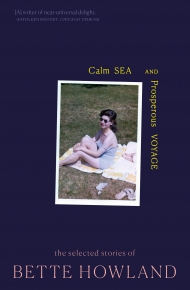A Letter from Yiyun Li
• Yiyun Li • October 1, 2013
Dear Reader,
One of the questions I have been asked most often by aspiring writers is how I began to publish. Variations of the question hint at certain myths about the publishing business—how being at the right place at the right time, or having the right connection to the right people, would be the most important factor in one’s career.
Certainly there are tales of publishing success that may seem to confirm such myths, though my own experience—and I can only speak from my own experience regarding this subject—is different. Like many young writers, when I first began to write, I sent stories out to literary magazines and received rejection slips back, all recorded diligently and dishearteningly in a spreadsheet. The journey of one particular story—“Immortality,” which was the first story I wrote—especially frustrated me: for two years, it traveled around in the mail and gathered some of the kindest rejection letters I have ever received.
In the spring of 2003, I got a phone call from Brigid Hughes, then at The Paris Review, asking if “Immortality”—sent to the slush pile with a one-sentence cover letter—was still available. The story was soon in print, and that, along with a few other pieces published in 2003, started my career—I was signed up by an agent, and at the end of the year sold my first two books. When the story was awarded the inaugural Plimpton Prize, for a while it became the center of a controversy, as it seemed improbable that a story from the slush pile, unaccompanied by a recommendation from an established author or a series of pressing phone calls from an agent, could see itself in print.
But it is not impossible—that is my answer—if your story finds the right reader and editor.
In 2005, when Brigid planned to launch a new literary magazine, A Public Space, I agreed to be a contributing editor—for a selfish reason, to read along with her, to agree and disagree with her. For the past four years, we have had numerous conversations about stories, storytelling, and other topics that have little to do with the business of publishing but the pure joy of reading great stories and letting those stories become part of our conversation: three years after Timothy O’Sullivan’s story (his first publication) appeared in Issue 1 of A Public Space, we still go back and reread the story, and talk about it. Stories and essays, by established writers as well as newcomers—Marilynne Robinson, Kelly Link, Amy Leach, Ian Chillag, and many others published in the magazine—live on in our discussions. These conversations have become an important part of my life: writing, as people always say, can be a lonely business, though reading, as a woman told me on my book tour, can be a lonely business too. I am fortunate that I have discovered a rare friend who makes writing and reading less lonely for me, and it is my hope that other readers like me would find the magazine, to read with us, to be included in the conversation.
Of course it is a business to run an independent literary magazine—a most challenging business when calamities and doom seem to be the perennial topics about the publishing industry, and universities cut budgets and close established literary magazines. It is especially crucial, at this moment, for A Public Space (and other independent literary magazines) to receive support from readers and lovers of great literature, as it is not the business people in the business, in the end, who make a difference in nurturing young writers and curating great literature, but people who love reading and care about the future of literature.
I sincerely hope you will support A Public Space, by subscribing to the magazine, making a donation, or simply spreading the word to other readers. Thank you.
Yours truly,
Yiyun Li
Back to Top
Author
Yiyun Li is the author of seven books, including Where Reasons End, the winner of the PEN/Jean Stein Award; and the novel Must I Go, which will be published by Random House in July. She is the recipient of a MacArthur Fellowship, Guggenheim Fellowship, and Windham-Campbell Prize, among other honors. A contributing editor to A Public Space, she teaches at Princeton University.
Categories
Archive
About
A Public Space is an independent, non-profit publisher of the award-winning literary and arts magazine; and A Public Space Books. Since 2006, under the direction of founding editor Brigid Hughes the mission of A Public Space has been to seek out and support overlooked and unclassifiable work.
Featured Title

"A ferocious sense of engagement... and a glowing heart." —Wall Street Journal
Current Issue

Subscribe
A one-year subscription to the magazine includes three print issues of the magazine; access to digital editions and the online archive; and membership in a vibrant community of readers and writers.
Newsletter
Get the latest updates from A Public Space.
